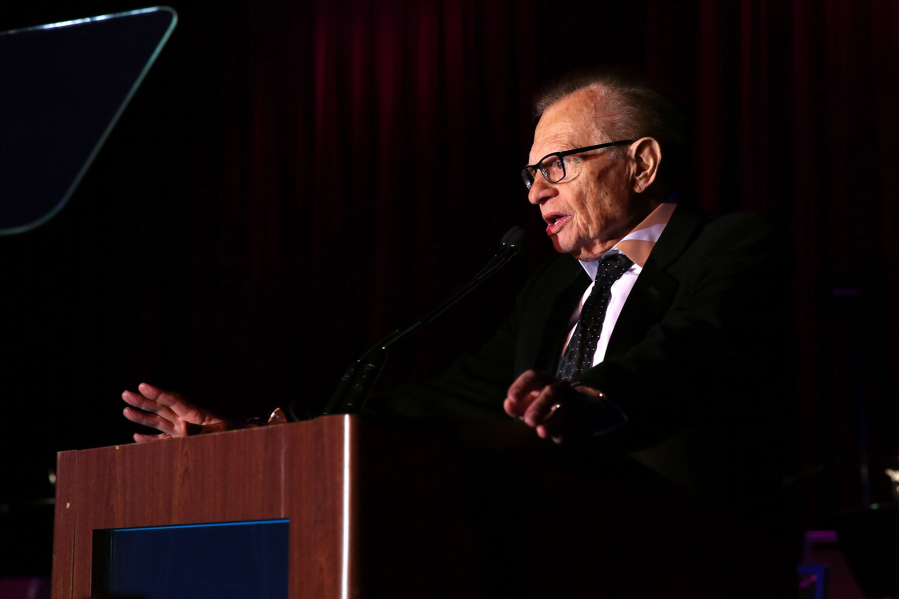LOS ANGELES — “Welcome aboard,” said Larry King, the great American interrogator. I had come to watch him at work, which was also to watch him at play.
He was taller than I’d expected from TV, where he tends to slouch in his chair or hunch over his desk while he conducts his interviews, of which there have been several tens of thousands over what, next May, will be 60 years in the talking business.
At 82, King, whose “Larry King Live” was a top-rated weeknightly staple of CNN for a quarter-century, is now a man of the internet. Having unsuccessfully retired from broadcasting in 2010, he was back just two years later with the thrice-weekly “Larry King Now,” which lives on Ora TV, an on-demand digital network King created in partnership with Mexican billionaire Carlos Slim. More than 650 episodes have been made so far and are available through Ora’s own site and via the streaming service Hulu.
King is a chimerical figure: part newsman, part entertainer, part personality and part ordinary troubled human. With a career that has encompassed radio, television, print, personal appearances, social media and the internet, you could call him serially multi-platform.



